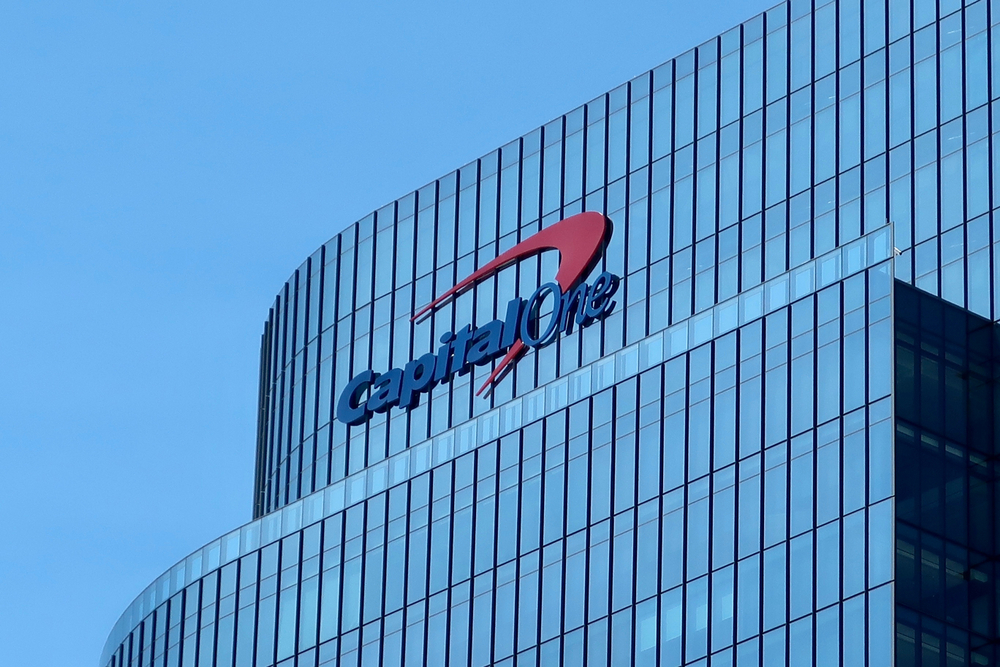Capital One Proposes a Merger with Discover: How Could It Affect Banking Consumers?

The fourth-largest credit card company in the U.S. may be poised to get bigger. In a stock-only deal worth an estimated $35 billion, Capital One plans to acquire Discover® Financial Services, the sixth-largest credit card company in the U.S., providing the plan passes regulatory and shareholder muster.
If all goes as planned, the acquisition will be completed by the end of 2024 or the beginning of 2025. For now, current account holders of Capital One and Discover are not expected to see much change, but here are some changes consumers could see once the transaction is complete.
Possible Expanded Credit Card Offerings, Perks, and Rewards
If this deal is approved, the resulting company would become the largest credit card company in the U.S. by balance owed. For current and future cardholders, this will affect where cards can be used, the terms of use, and what kinds of cards are offered.
While both companies offer similar products, they each have distinct advantages that could lead to a broader selection of offerings to cardholders. Here are some ways credit cards from both companies compare and what the merger could mean for credit card consumers.
More Places to Use Your Discover Card
Discover has built its own worldwide payment system with many places where cardholders can use their cards. Right now, that equates to 70 million places in more than 200 countries. Even so, it’s still the smallest credit card payment system.
Discover cardholders will be able to use their cards in even more places, and Capital One will have access to Discover’s unique network, which may offer better deals to customers and small businesses.
Fees and APR
Discover is known for its customer-friendly approach, often waiving annual fees and providing introductory 0% APR periods on purchases and balance transfers.
Similarly, Capital One offers various cards with no annual fees and introductory APR periods, catering to diverse needs.
Competition from other issuers like American Express could help ensure that fees and APRs will likely remain competitive, providing consumers with options and incentives.
Card Offerings
Card offerings between the two banks overlap in several areas. Discover offers a variety of cards, including cash back, travel rewards, student, and secured cards, and some co-branded options, and Capital One has similar offerings.
More customers will have access to specialized cards they may not have considered. For example, while Capital One offers a premium travel card, Discover doesn’t. Discover offers a robust cash back program that current Capital One customers could benefit from.
Special Features
Discover is known for its U.S.-based customer service and perks, such as free FICO credit score access for cardholders, while Capital One offers various benefits depending on the card, such as travel insurance, extended warranty protection, and 24/7 customer service.
Capital One offers features like CreditWise, which offers free credit monitoring and tools to help cardholders build credit. Discover offers unique features such as the Discover Deals program for extra cash back at select retailers, and no foreign transaction fees on some cards.
It will be a boon for consumers if Capital One comes up with innovative ways to combine the best special features of both cards to create new products.
Easily Compare the Best Checking Accounts Online
Compare rates, fees, accessibility, customer service, and more. Find the best checking account for your needs.
Access to One of the Largest and Most Accessible Online National Banks
While much of the focus of the merger is on credit cards, it’s important to note that both companies offer a complete slate of banking products, including checking, savings, and CD accounts.
These accounts will also be merged in some way, though it’s hard to say right now how that will look. Here are some ways bank account customers at both financial institutions could be impacted.
Convenience
With an expanded network, banking customers would have access to a larger ATM and payment network. Discover banking customers stand to benefit the most from this, with Capital One offering 259 branches, over 80,000 fee-free ATMs, and locations where customers can make cash deposits.
An Advanced Online Banking Experience
While both banks excel in offering online banking to their customers, Capital One plans on scaling its banking technology to Discover’s network. Discover has built a substantial savings account product by offering high interest rates. Capital One hopes to leverage that product and others to help it compete with the biggest banks in the country.
Could FDIC Protection Be Diluted?
The FDIC offers up to $250,000 worth of protection per account, per person. Consumers with over $250,000 in liquid assets often spread their money across several accounts and banks. With the merger of these two banks, people with money in both banks will need to rethink how their money is allocated to ensure they receive the amount of FDIC protection they need.
What Are the Concerns?
Some consumer advocates and politicians are concerned that the merger will reduce competition. Reduced competition historically hurts consumers and boosts companies. The concern from some is that with less competition, credit card fees and interest rates will rise.
In effect, if this is determined to be the case, the merger could be blocked if it breaks antitrust laws. Antitrust laws were created to foster fair competition and avoid monopolies in essential businesses such as banking. Capital One has several hurdles to jump to complete this acquisition. Through each part of the process, it will become clearer to consumers how the changes will affect them and the personal finance landscape.